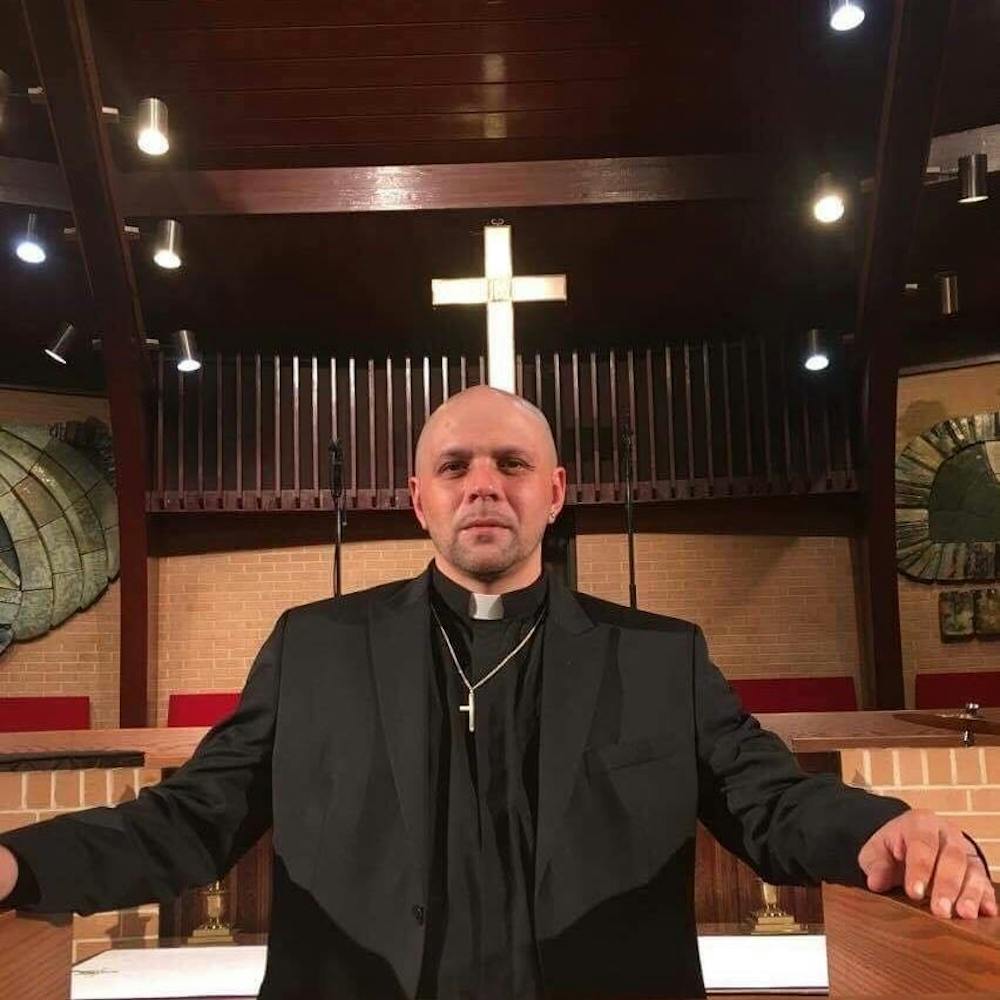On March 18, 2004, 23-year-old Erich Kussman was awaiting sentencing in a robbery case at Somerset County Jail when he prayed to God to let him out of prison. On March 19, 2004, Kussman was released due to an administrative oversight.
Kussman was released on a cold day wearing just the shorts and t-shirt he had been wearing when locked up. He recalled running into a man holding a clipboard on the street. Kussman asked if he was lost. “You’re lost. You don’t know Jesus,” the man replied.
Kussman took it as a sign.
Thirty-two hours later, Kussman was re-incarcerated, but that religious experience during his taste of freedom put him on a path to Princeton Theological Seminary. With his sentence shortened by 10 years, he committed himself to his studies. Kussman now spends his days as a social justice advocate, attempting to challenge preconceived notions about incarcerated individuals.
“I started reading the Bible, reading books, and trying to educate myself,” Kussman said. “The best investment is going to school.”
Kussman came from a tumultuous childhood, selling drugs and getting into fights at school. Kussman’s father was absent, and his mother struggled with substance addiction. Once on the inside, he argued with fellow inmates who used his cell as a church, but the day before his temporary release, Kussman decided to join in the services.
After his re-incarceration, Kussman was moved to Albert C. Wagner Youth Correctional Facility, where the chaplain Reverend Emmanuel Bourjolly saw potential in both Kussman’s book knowledge and his exceptional ability to listen.
“Prison is not conducive to learning. It is an environment of punishment,” Bourjolly said. “The best way to transcend this punishment is the art of listening. [It’s] a skill that opens people to understanding one another.”

Bourjolly recommended Kussman to the University’s Petey Greene Program, which was in its pilot stage at the time. Through the Program, Julia Jacobson ’10 helped Kussman get his GED and put together college applications.
Jacobson did not respond to requests for comment.
Kussman graduated from Pillar College in three years at the top of his class with a bachelor's degree in Biblical Studies. In his final year, having built up a strong reputation as a leader on campus, his peers elected him student body president.
“It’s like a family there. They really cared about me succeeding,” Kussman said. “You know that expression, ‘it takes a village?’ Pillar College was my village.”

According to Kussman, school helped him in his transition from incarceration to freedom.
He noted that before he was locked up, not everyone had laptops, and “no-one had those cool-looking iPhones.”
“Society had changed and they helped me get my feet grounded,” he said.
The day after Kussman’s graduation, Bourjolly set up an appointment with the admissions office of Princeton Theological Seminary. Kussman earned a full scholarship and is set to graduate with a Master of Divinity this May.
He went on to co-found Ransom Writers and Speakers, a support network that helps previously incarcerated individuals re-enter society.
“I try to recreate the impact that Petey Greene, Pillar College, and now Princeton Theological Seminary had for me. You want to see people have that magic in their eyes again,” he said.
Kussman is now a pastor at a church in Patterson, N.J., where he is an outspoken advocate for social justice. He recently spoke at the counter-protest against the planned white supremacist rally in Princeton. Last year, he spoke on Petey Greene’s panel at Reunions.
Kussman explained his drive to speak out.
“When I look at people, especially people dealing with immigration issues, mass incarceration, everything I’ve been advocating for, I see myself in that situation,” he said. “I understand what it means to go through struggle. I know what it means to be left out.”
He explained that people’s preconceived notions about formerly incarcerated individuals as “ravaged wild animals” prevent them from seeing their humanity at large. In fact, according to Petey Greene’s executive director Jim Farrin, when Kussman was scheduled to speak at a conference as Petey Greene’s keynote speaker, his parole officer barred him from speaking because he “should have been flipping hamburgers at McDonald’s.”
Kussman gave the speech anyway via teleconference and took the opportunity to speak out about the importance of education and thank those who had lifted him up.
“I feel it’s my calling to stand alongside people who are suffering,” Kussman said. “I want to treat people how I would want to be treated, because there’s a commonality within us all.”








